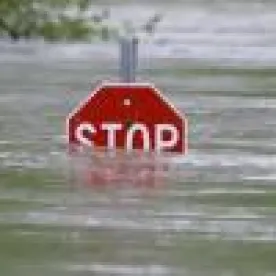On May 16, 2019, the United States Court of Appeals for the Seventh Circuit affirmed a district judge’s Daubert decision excluding an expert’s opinion that contaminant releases into groundwater were “sudden and accidental,” because the expert had not used “scientifically reliable methods to reach his opinion.” See Varlen Corp. v. Liberty Mutual Ins. Co., No. 17-3212 (7th Cir. May 16, 2019). The Seventh Circuit, in considering the environmental insurance coverage dispute, simply applied the Federal Rules of Evidence and Daubert standards for admissibility of expert testimony. However, the opinion has the broader, practical impact of barring insurance coverage to the policyholder (the contaminated site’s owner) because of a qualified pollution exclusion in its commercial general liability policy. Since the excluded expert was the policyholder’s only relevant expert, the opinion is a harsh reminder that Daubert challenges can have far-reaching impacts in insurance recovery actions in federal court.
Here, because the pollution exclusion barred coverage unless a “discharge, dispersal, release or escape is sudden and accidental,” the policyholder had sought to introduce expert evidence that the contaminant releases were “sudden and accidental.” In the case below, described here, the policyholder’s expert opined that the releases were “sudden and accidental” by virtue of “the size of the plume” and “the amount of pollutants” at the site. The district judge ultimately took issue with the expert’s failure to demonstrate that his opinions resulted from a reliable methodology, calling them speculative, and thus excluded his testimony and entered summary judgment against the policyholder.
The Seventh Circuit agreed, concluding that the expert “failed to demonstrate that his conclusions were anything more than guesses.” Accordingly, because “[t]o satisfy Daubert, [the expert] needed to provide an explanation of how the evidence led to his conclusions,” and “had to articulate a justification for his inference that the chemical spills were sudden and accidental beyond a simple say-so,” the Seventh Circuit affirmed the district judge’s exclusion of the expert’s testimony. Consequently, without any evidence that the contaminant releases happened “suddenly and accidentally,” the policyholder was left unable to avoid application of the pollution exclusion.
The Seventh Circuit opinion provides tough guidance concerning the use of expert testimony by policyholders in environmental coverage cases. As environmental and commercial disputes become increasingly technical, this decision reminds insurance coverage litigators not to take for granted the admissibility of expert opinions. Where, as here, a policyholder rests its entire coverage case on one expert and, on top of that, fails to navigate the requirements of Daubert and the Federal Rules of Evidence, the consequences can be costly.





 />i
/>i

